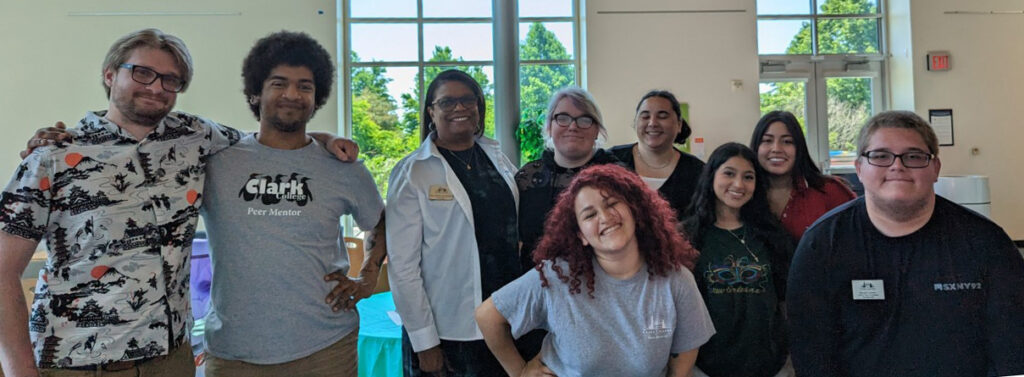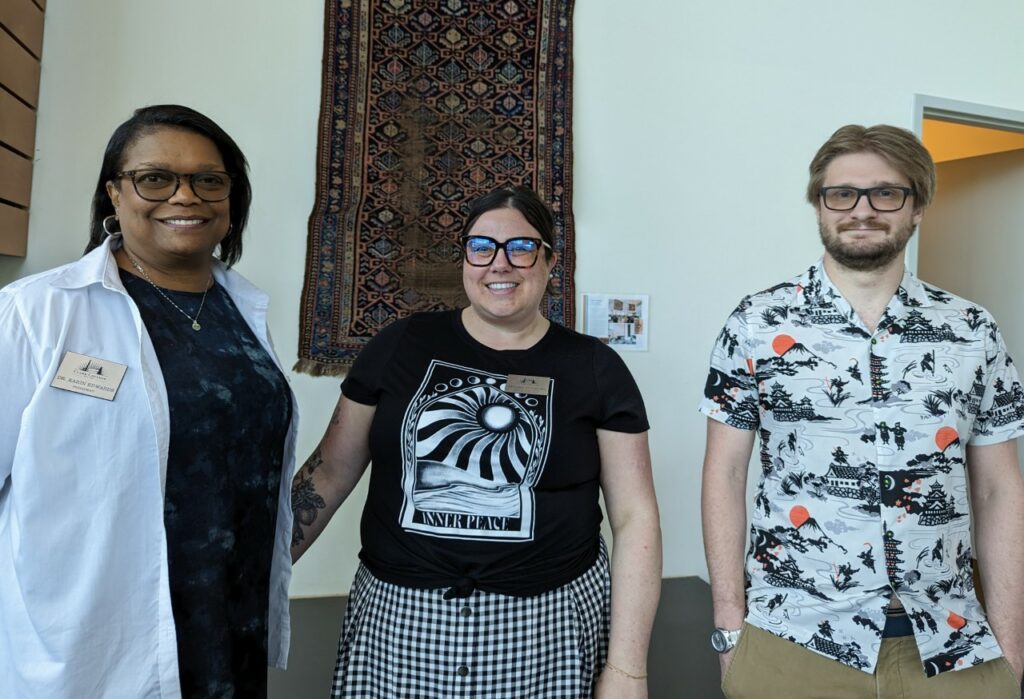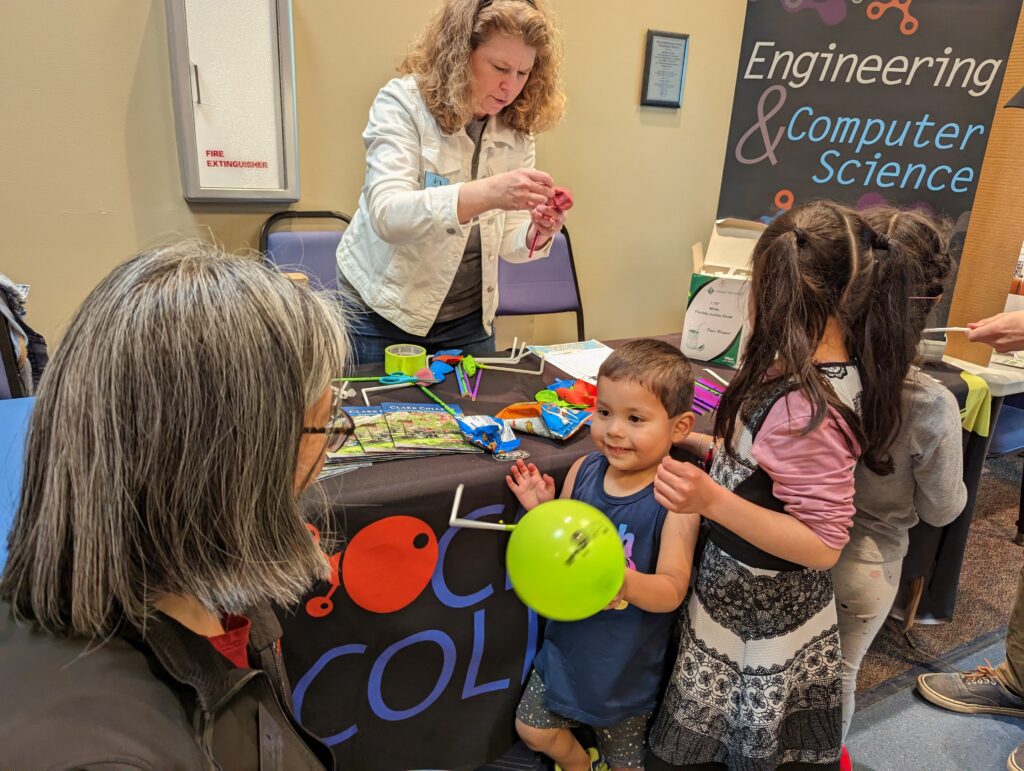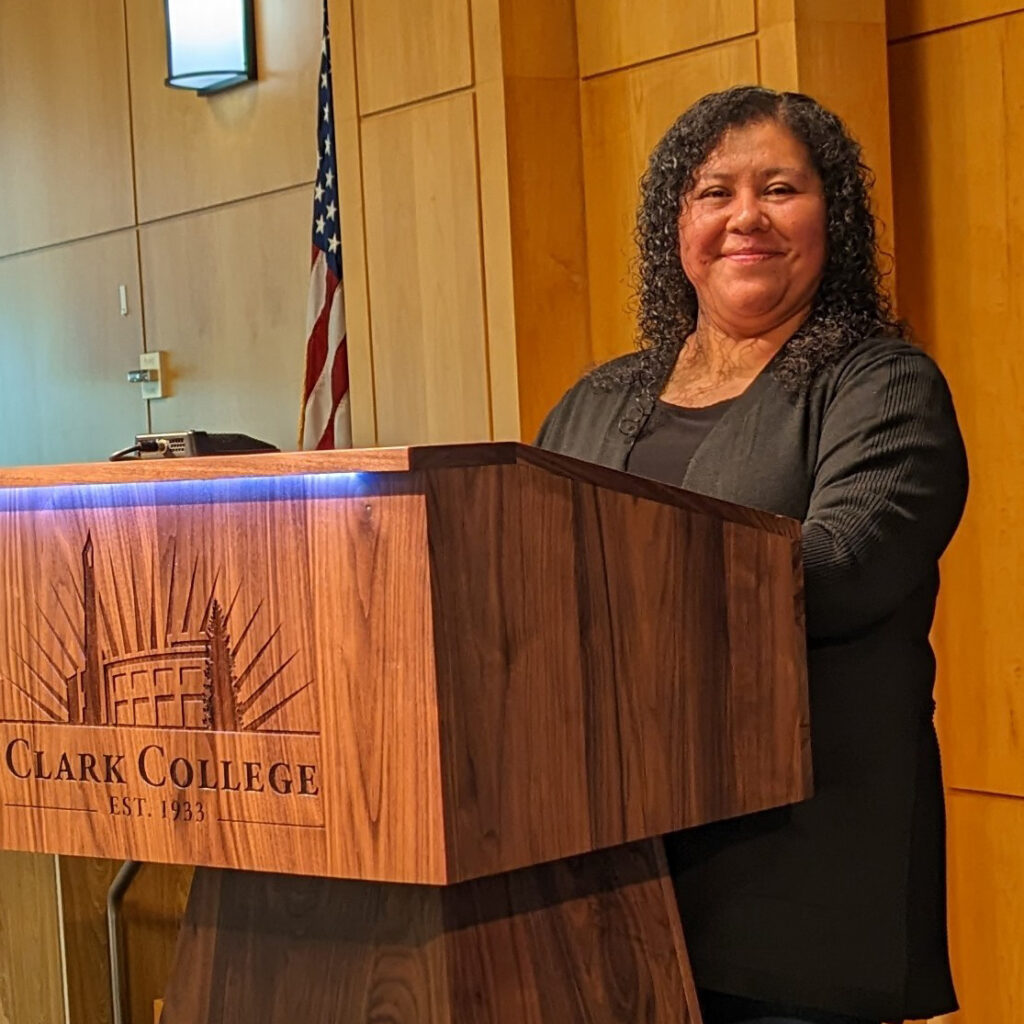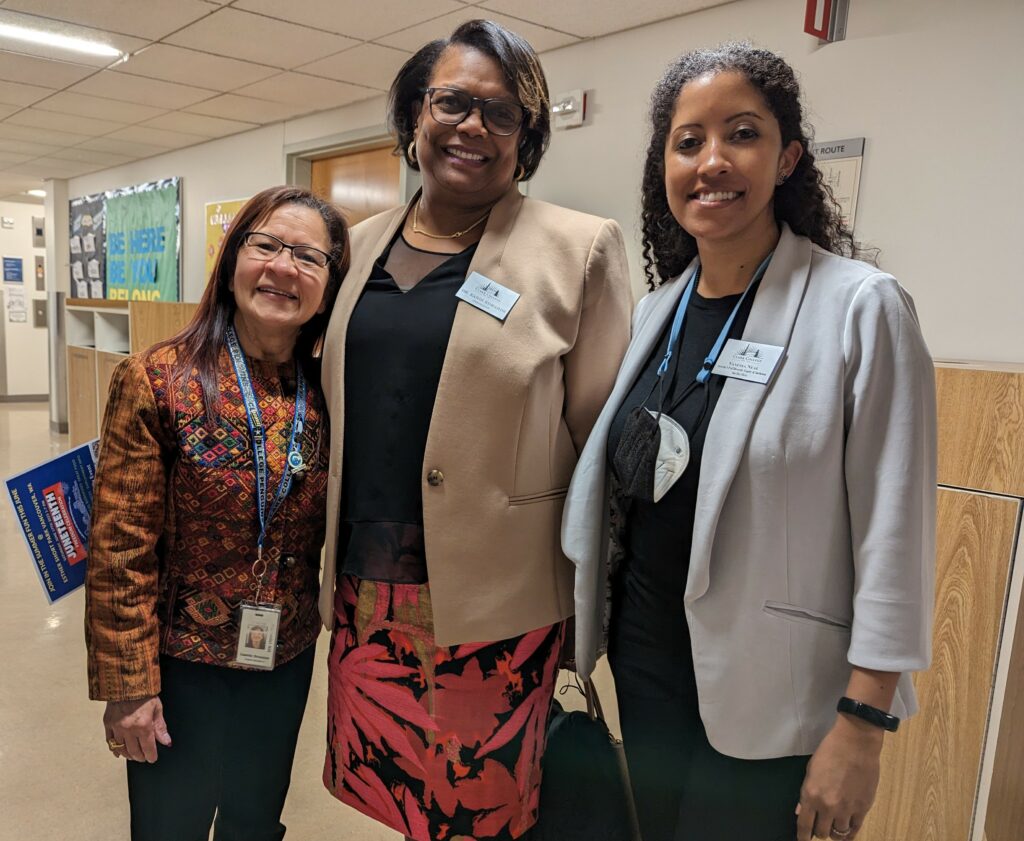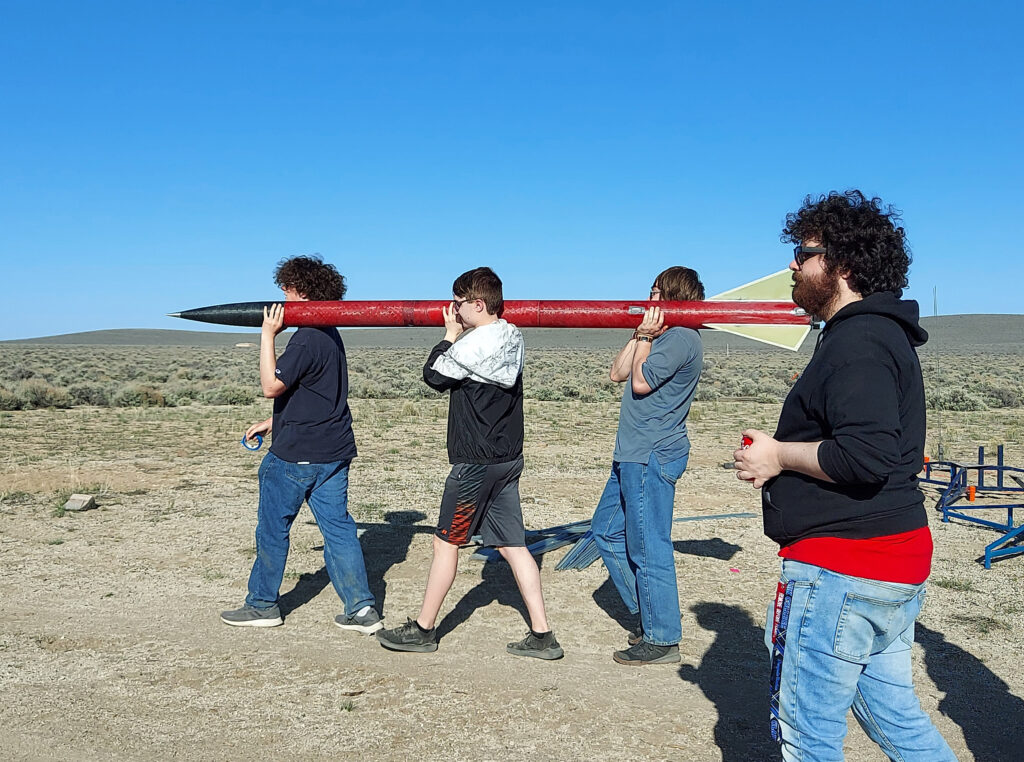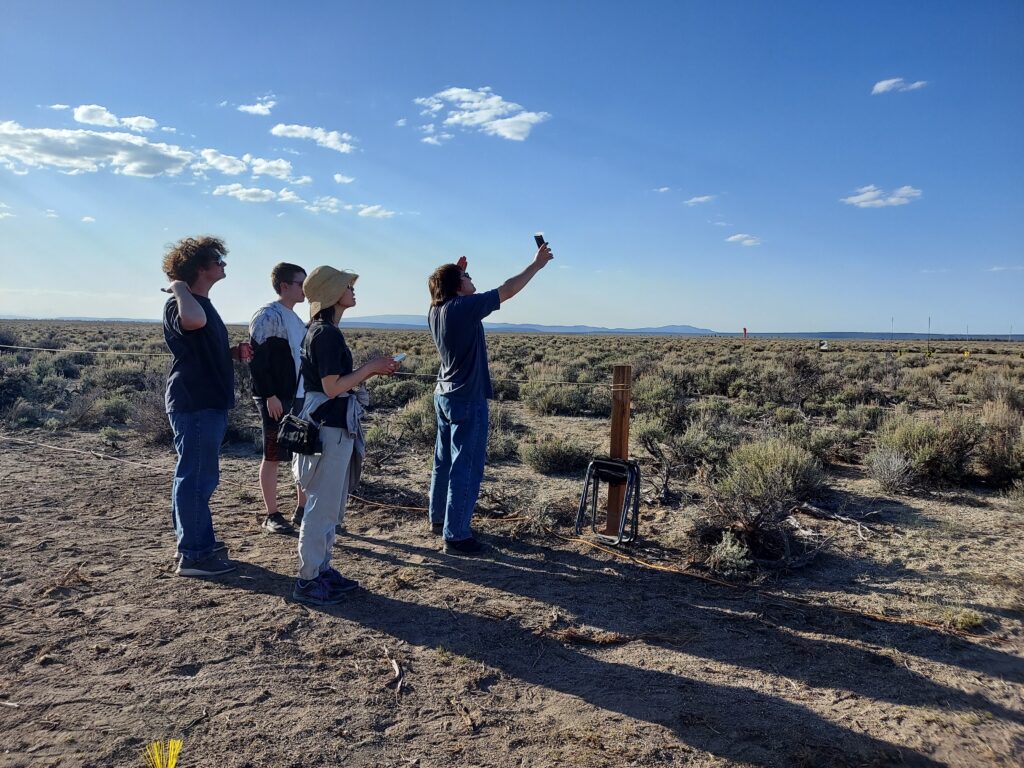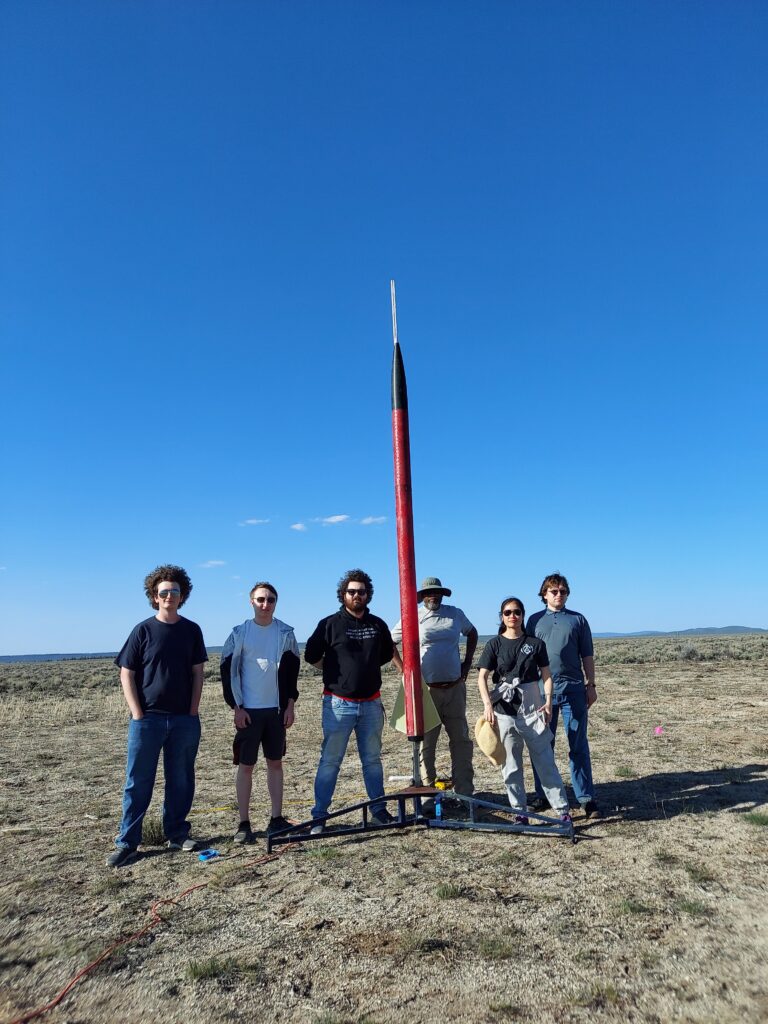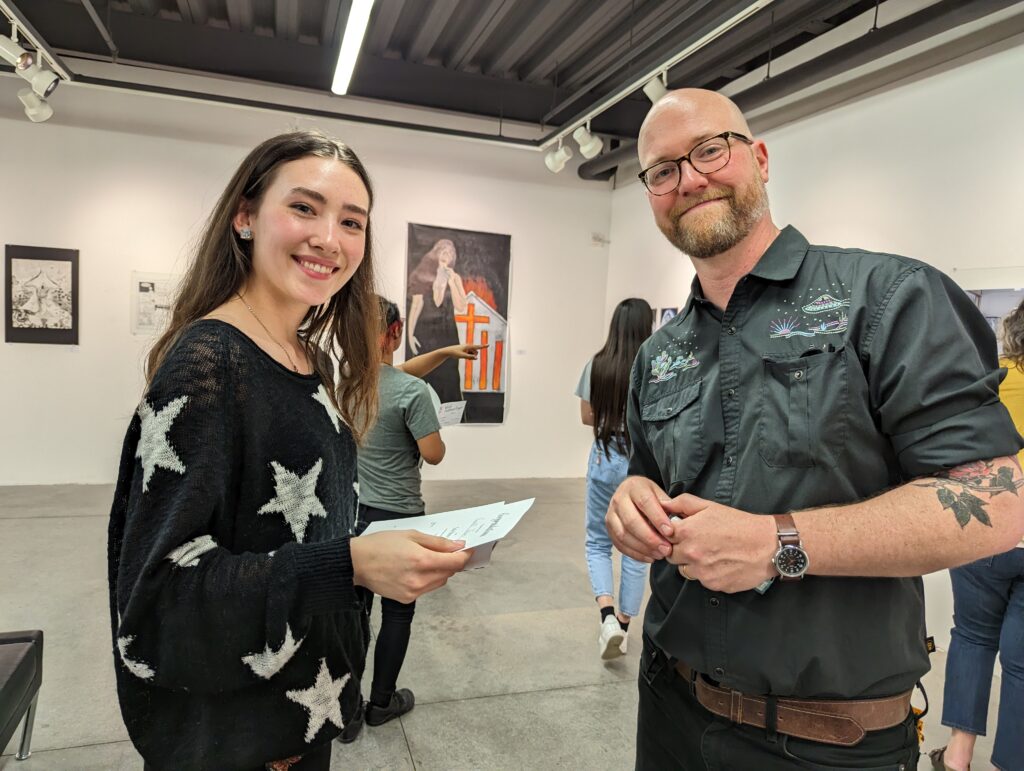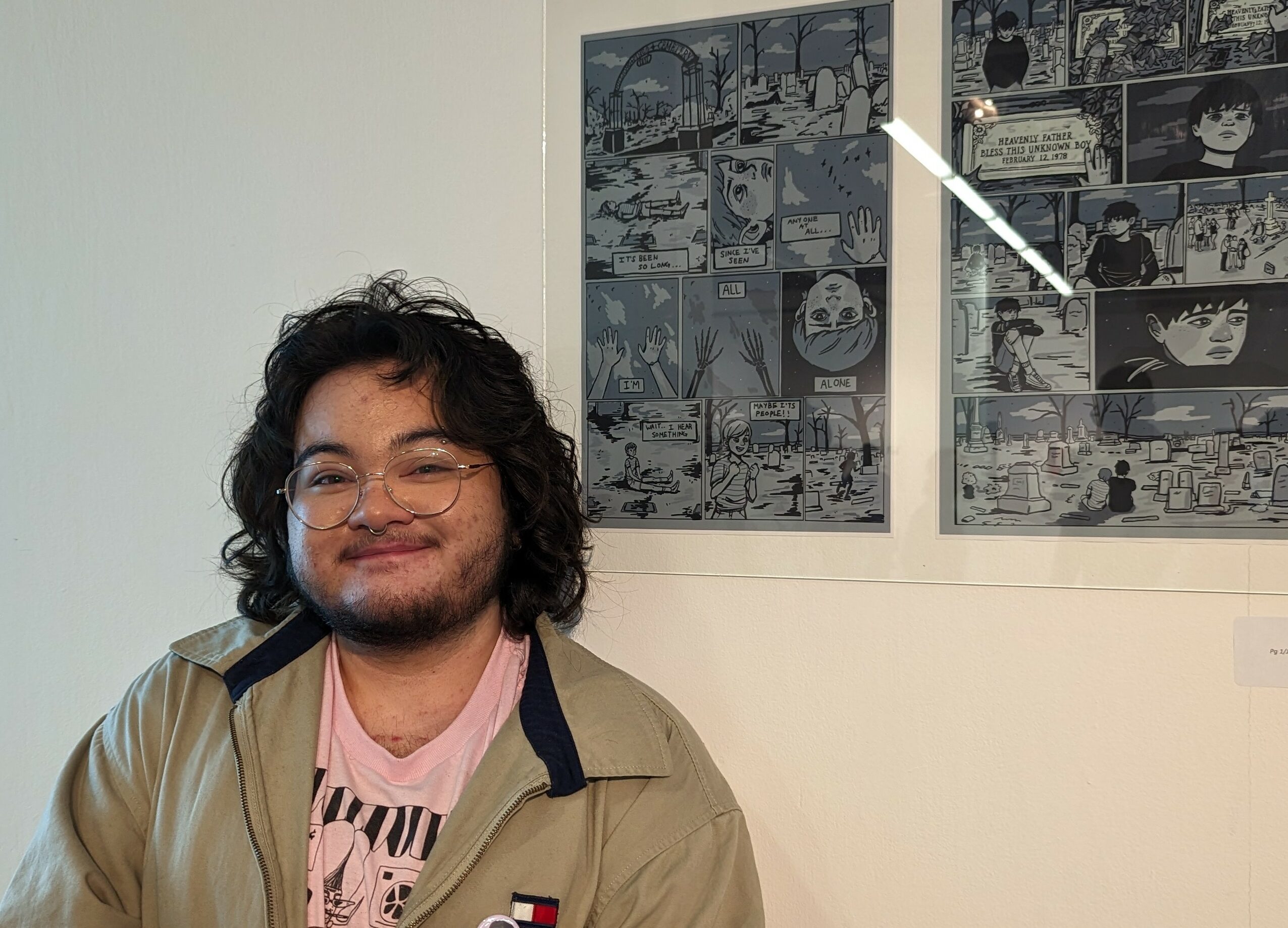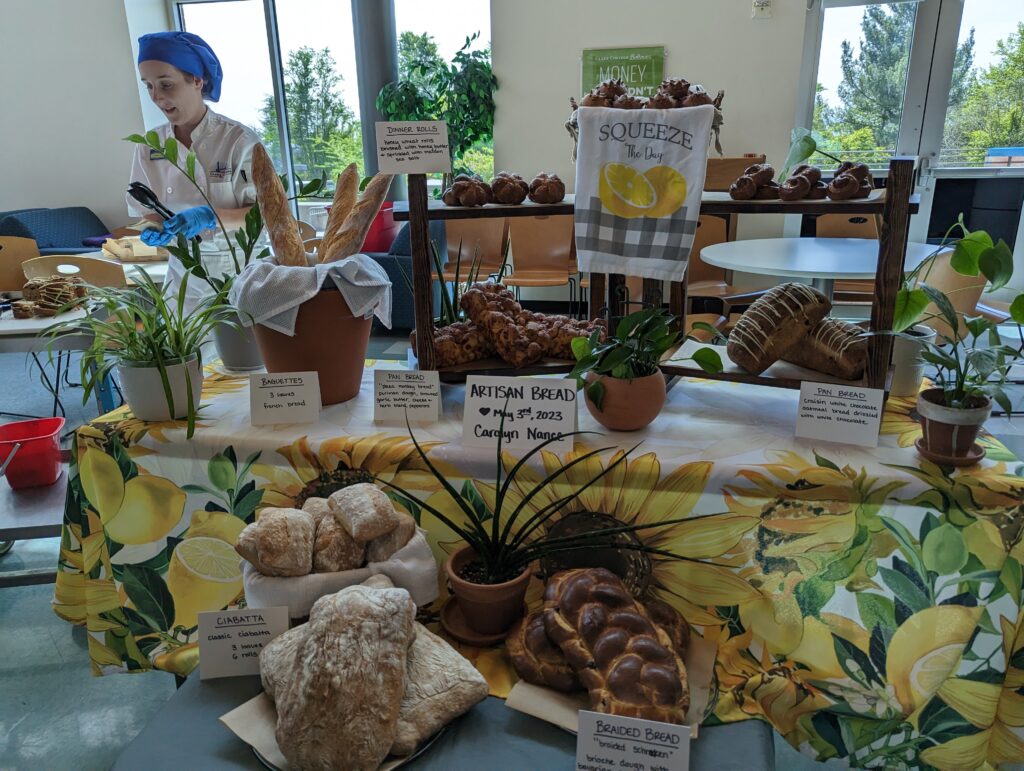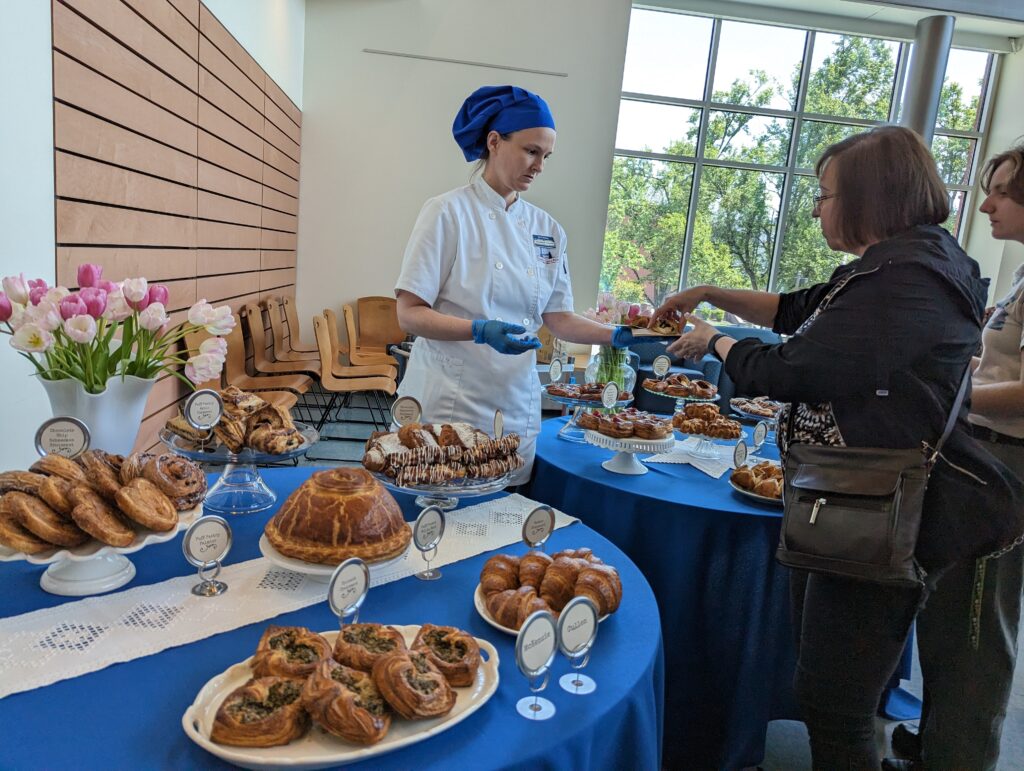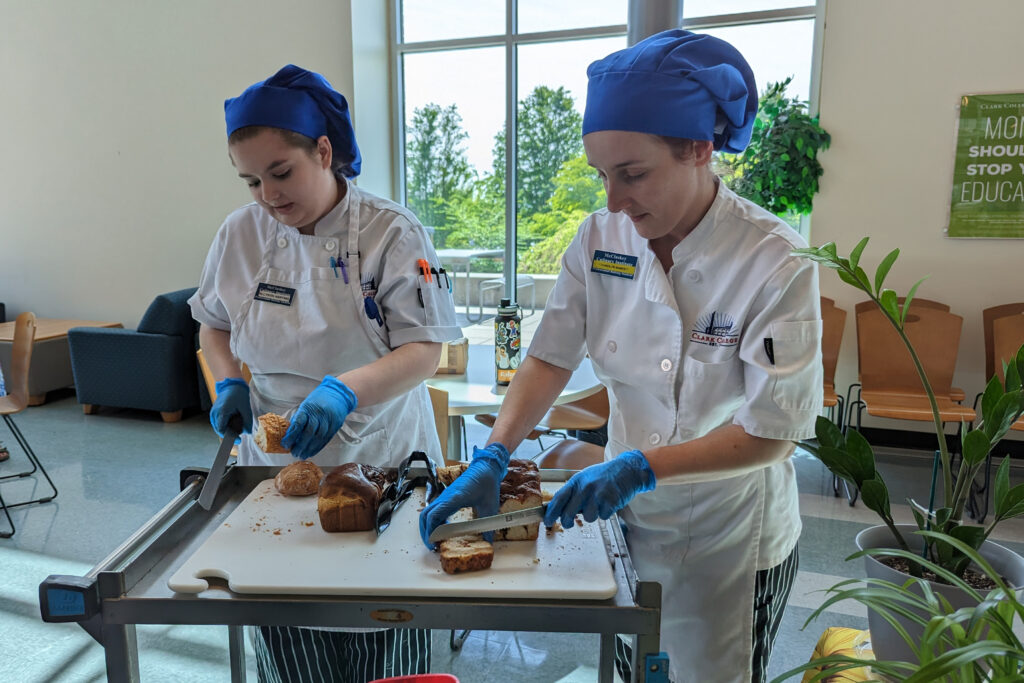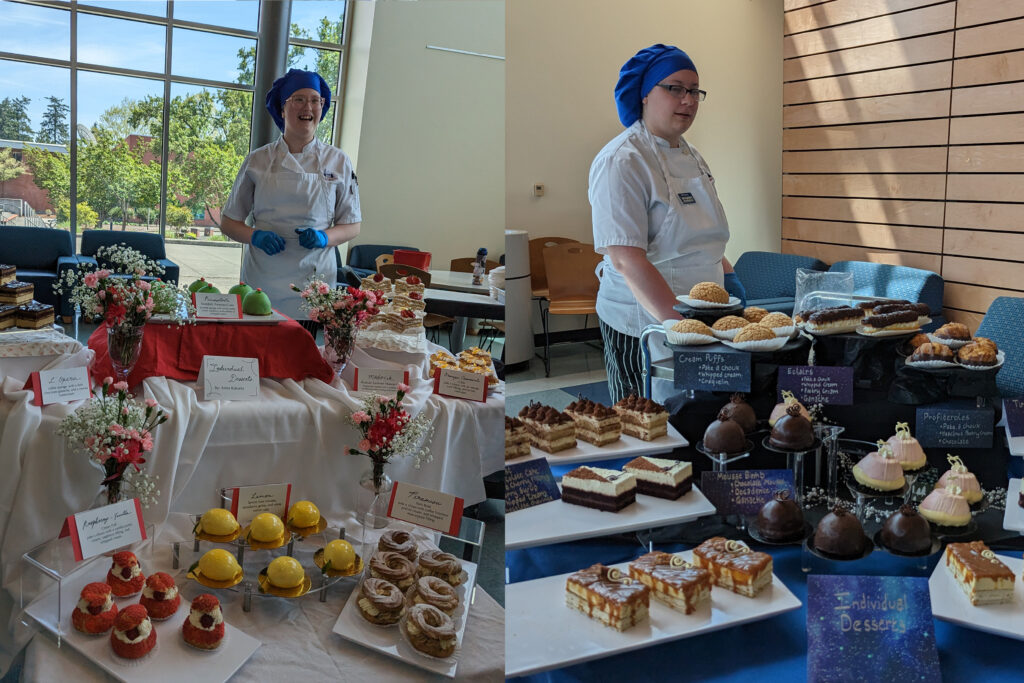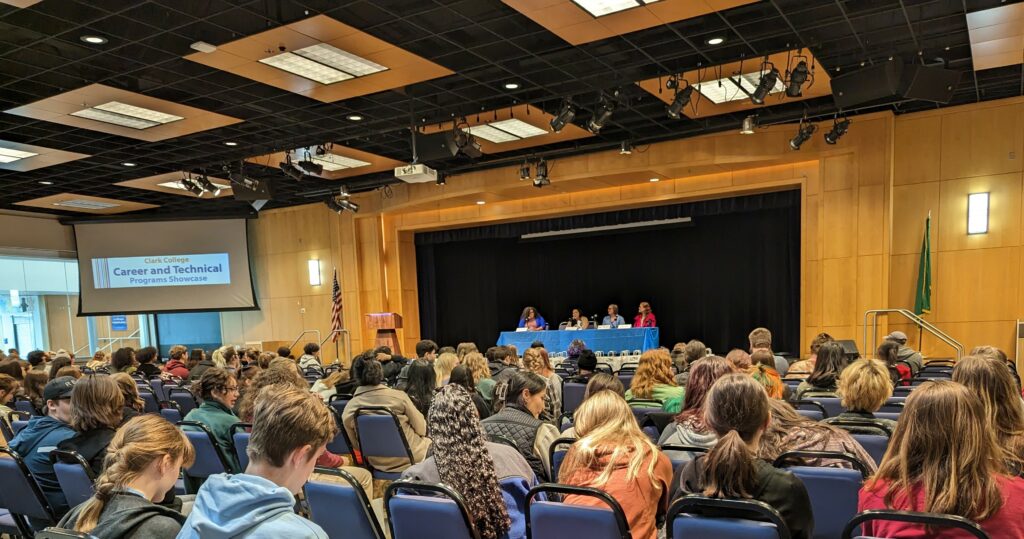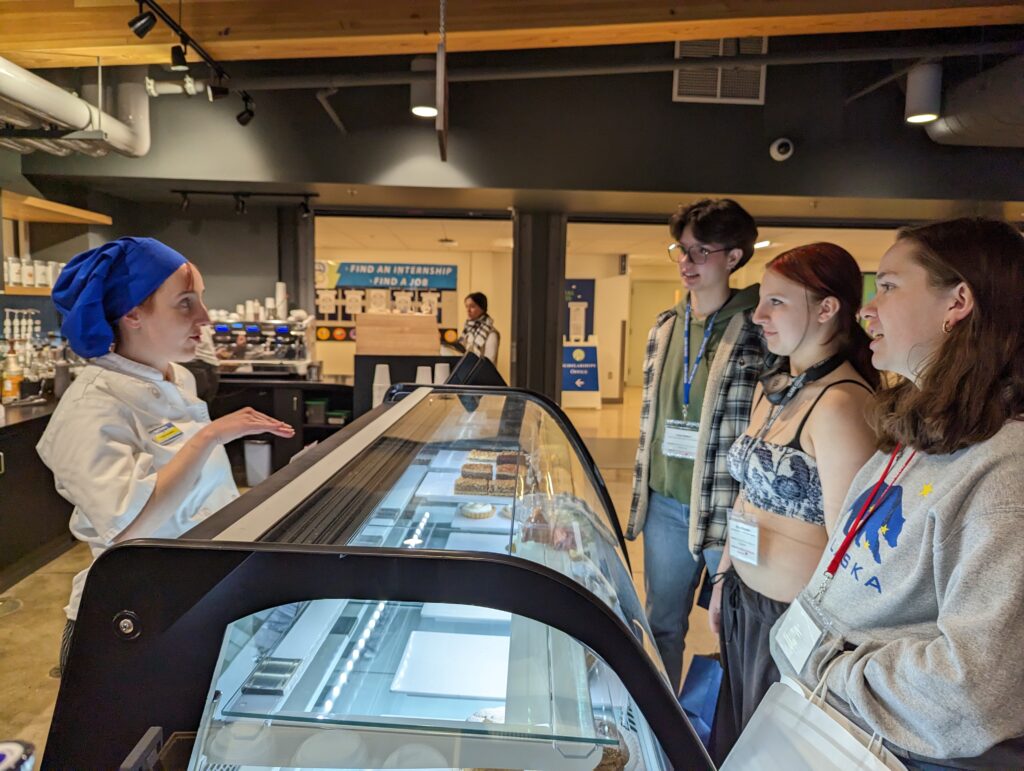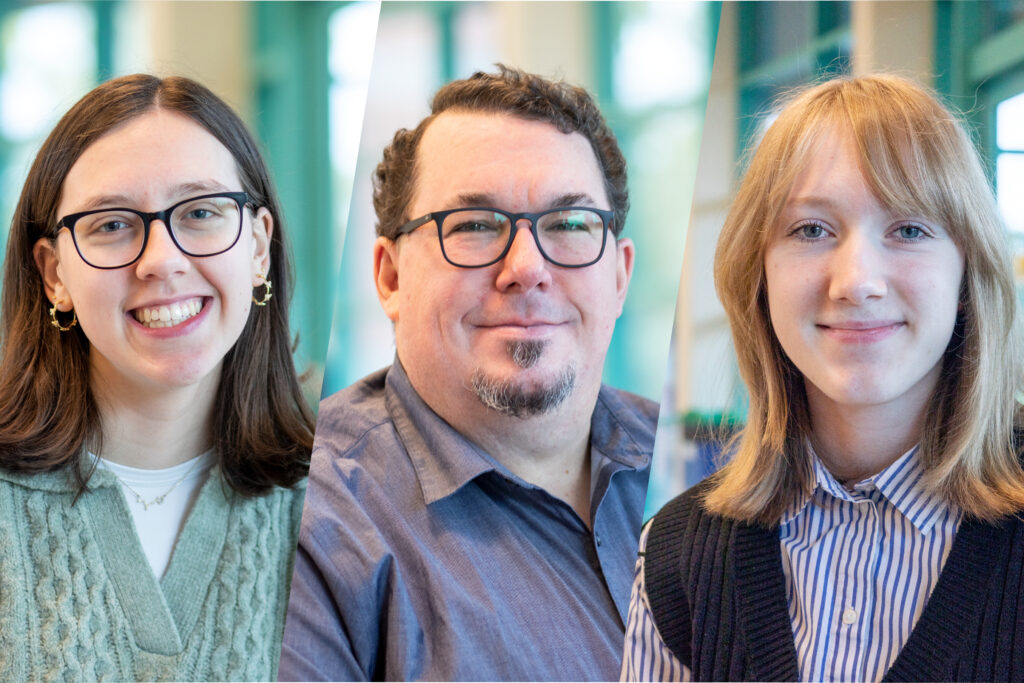Women in STEM Tea
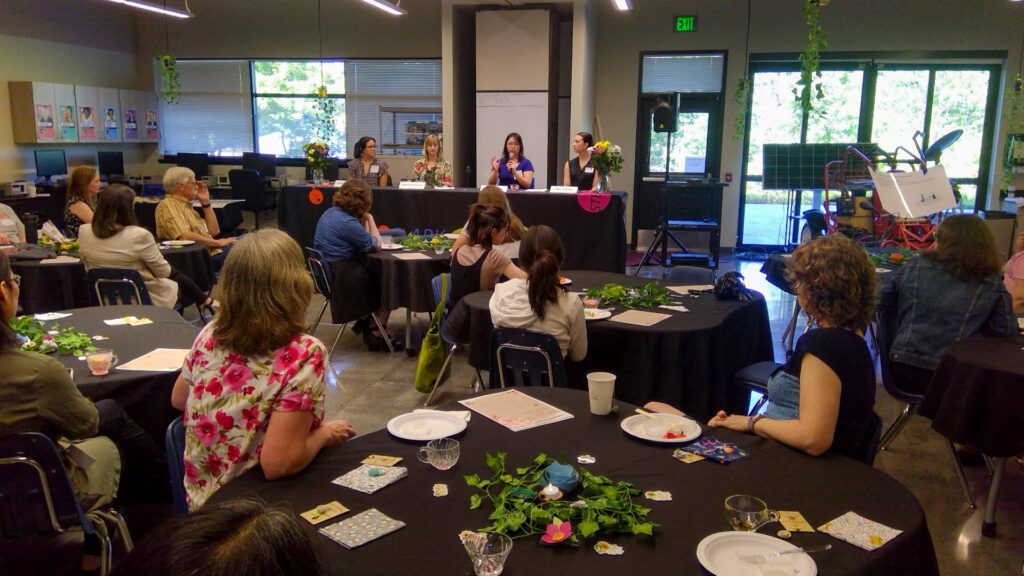
To equip their engineering students for success, professors Tina Barsotti and Carol Hsu encourage their students to create community by participating in campus and community outreach events, including STEM NERD Girls.
These outreach events available in Engineering program provide opportunities for diverse learners to explore and achieve their educational goals by promoting social connectedness through peer support, volunteering, networking, professional interaction, and mentoring.
“Building community fosters collaboration and connectedness,” said Professor Barsotti. “By providing these opportunities, the program encourages students to continue their paths in the STEM field. This helps us to retain students from systemically non-dominant groups.”
Engineering graduates remain connected
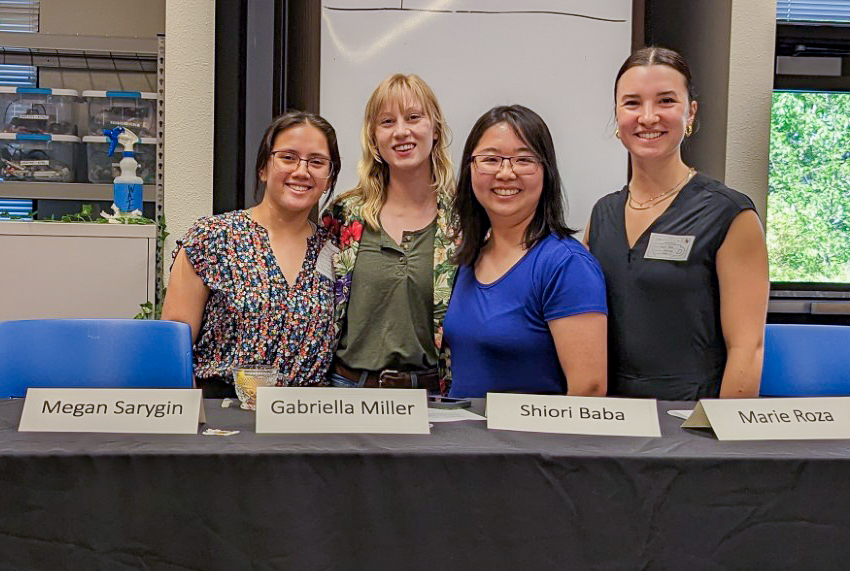
Four Engineering graduates who volunteered in outreach events also formed a study group when they were Clark students. Over the years, they have remained friends and continue to encourage each other as they transitioned to pursuing bachelor’s degrees, and now in the early years of their careers. They spoke on a panel at a Women in STEM tea on May 17 in the STEM Building.
Megan Sarygin, Gabriella Miller, Shiori Baba, and Marie Roza heeded their professors’ advice when they were STEM students at Clark College. They volunteered in NERD Girls and contributed to other outreach and campus events. After they graduated from Clark, they transferred to various universities, but they continued their study group as they faced the rigors of advanced STEM classes and projects.
Some years later, they still connect and remain friends. Now instead of seeking advice about college classes, they discuss the successes and challenges they are experiencing as young women working in male-dominated STEM fields.
Megan Sarygin
Profession: Field service engineer, Tokyo Electron US
Education:
- Clark College Running Start student; Associate of Science, mechanical engineering, 2019
- Bachelor of Science degree in mechanical engineering, minor in business administration, Washington State University Vancouver, 2021
Insights:
“Developing your social skills is very important, just like your hard skills. Social skills are just as important as your classes, getting good grades, and studying. Make connections. Work in a group. Work on your communications skills.”
“Ask for help. In a lab at WSU Vancouver, we were using a mill and a lathe to make small parts for a gyroscope. Using the lathe did not make sense to me. I was so far behind. The lab instructor was patient and opened up the lab on the weekend for extra work on the lathe. It was so nice to have it click in my brain.”
Gabriella Miller
Profession: Associate mechanical design engineer, Curtiss-Wright Corporation
Education:
- Clark College, Associate of Arts, mechanical engineering, 2018
- Bachelor of Science degree in mechanical engineering, Washington State University Vancouver, 2022
Insights:
“When we were growing up, it wasn’t expected that a girl would go into a STEM field.”
“I wanted to work in a field where there are always questions to answer, opportunities to learn.”
“I was drawn both to aerospace and neuroscience. I asked myself: Space or brains?”
“Being able to make mistakes is sometimes harder for women. People can be more critical.”
Shiori Baba
Profession: Project engineer classified as civil engineer, Bonneville Power Administration
Education:
- Bachelor of Science degree in geology/earth science, University of Washington, 2016
- Clark College, supplemental prerequisite engineering classes to transfer to Portland State University
- Bachelor of Science degree in civil engineering, Portland State University, 2021
Insights:
“Networking is a scary term, but who you know is important. You don’t know who will be your boss or what opportunities may come up because of word of mouth.”
“My agency makes transmission lines and maintains substations. It’s been male dominated, but I’m seeing more female engineers now. BPA has been putting in efforts for more diversity within their workforce.”
“It’s okay to make mistakes. Just make sure you learn from your mistakes.”
Marie Roza
Profession: Senior emerging technology engineer, Skanska, the fifth-largest construction company in the world
Education:
- Clark College Running Start student and Associate of Science degree in civil engineering, 2019
- Bachelor of Science degree in civil engineering, Portland State University, 2021
Insights:
“In engineering, there are so many options. You aren’t limited.”
“Construction is very male dominated. Only about 13% are women. But within my company, we have an amazing focus on diversity and inclusion.”
“Make your connections within your classes. It’s important to have a support system, especially as a woman in STEM. I could not have made it without these three.”
Photos: Clark College/Susan Parrish
